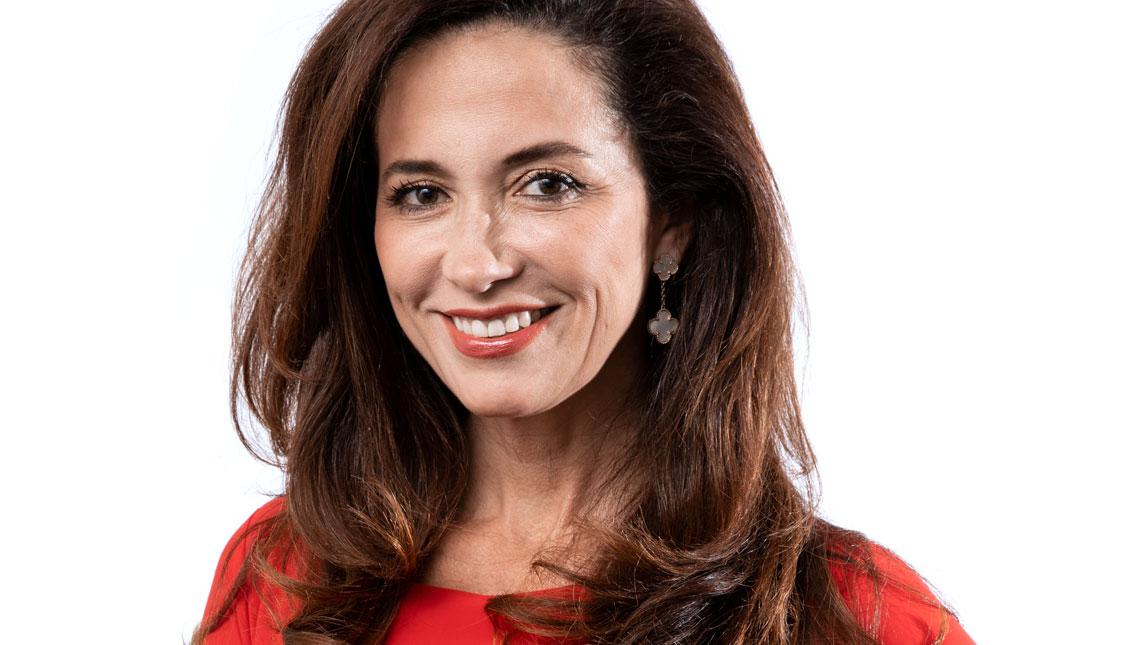
We Are All Human’s Hispanic Star activates Hispanics across the country against COVID-19
Founder Claudia Romo Edelman said COVID-19 was what the nation and Latinos needed to come together and “be one.”
The last time Claudia Romo Edelman visited AL DÍA, the topic of discussion was all about potential. Her organization, We Are All Human was set to launch in the Spring in exciting fashion.
“We had it all ready, we were in the White Sox stadium ready to launch on the Opening Day of Major League Baseball,” she said.
But then coronavirus happened.
The MLB, along with every other major sports league in the world was forced to either put off its start or shutdown for the remainder of the season.
For We Are All Human, it needed another way to get the word out about its initiative.
“We had to recognize that we had to repurpose our infrastructure, our network and our power to put Hispanic Stars in action,” said Romo Edelman.
So was born the Hispanic Star Response and Recovery plan and the Hispanic Star Month of Action campaign.
Both are geared towards supporting the U.S. Latinx community throughout the duration of the coronavirus pandemic.
Despite the shift, Romo Edelman said the efforts still fall within We Are All Human’s goal of uniting Latinos across the country and catapulting them into the mainstream where they belong.
“Hispanics have never been so ready,” was the message almost a year ago. On June 10, it now had the symbol of the Hispanic Star to get behind.
“It’s to give us a symbol to unify us all,” said Romo Edelman. “Hispanics are powerful, but we don’t know it because we think in bubbles.”
Those bubbles are often separated between the more than 20 countries that constitute Hispanic Latin America or along political lines.
“We needed to make sure that all those different countries of origin, that all those different ideologies, everyone that is called a Hispanic, all of us felt as a Hispanic and acted as a Hispanic community,” said Romo Edelman.
That message rings especially true when considering the Latinx population has been one of the hardest-hit by COVID-19 in the U.S.
The Hispanic Star Month of Action encourages Hispanics and others across the country to donate money, volunteer and share through social media to support the Hispanic community in the U.S.
It started with support from bigger companies like Procter & Gamble, IBM, PepsiCo and Cargill that has proliferated down to local resource hubs across the country.
The initiative launched with 10 hubs, in places like: Houston, Washington D.C., New York, New Jersey, Miami, Chicago, Denver, Dallas, Salt Lake City and Philadelphia.
Since, Romo Edelman said there are now 30 hubs and counting across the country.
“People from all across the sectors and different industries and different Hispanic organizations are saying: ‘I want to help my community. I want to be a part of change,’” she said.
RELATED CONTENT
When creating the hubs, Hispanic Star partnered with local organizations to pinpoint the exact needs of each community.
“We actually told them: local solutions to local problems,” said Romo Edelman.
Each local partner organization made a needs assessment of their community before officially becoming a hub.
Those needs assessments shaped the end goal, or mission of each hub.
For example, the Houston hub is looking for volunteers to deliver food to families affected by COVID-19, while Philadelphia’s hub plans to gift at least three grants of $500 to students impacted by the virus.
The local approach also helps Hispanic Star apply the help it’s getting from bigger sponsors more effectively across the nation.
In south Texas, a needs assessment found people unable to pay their bills and without food.
“We were able to say: ‘PepsiCo, Proctor & Gamble, people, let’s get funding and products and protective equipment so we can get it to the people in the south of Texas that are not lucky enough to be part of a [food]stamp system or that are not getting a PPP-system or anything,” said Romo Edelman.
The effort there was in partnership with more than 20 cities and distributed upwards of 10,000 goods to communities in 11 days.
“What we have seen here is that we do have the power of getting action together and that it can be self-organized as well,” said Romo Edelman.
The Hispanic Star Month of Action launched on May 21, but Romo Edelman assured that the initiative would go longer than the month that was initially planned because of the outpouring of communities wanting to get involved.
Amid the many crises that are happening across the nation at the moment, Romo Edelman stressed this involvement was key to shifting the narrative around Hispanics in the U.S. and uniting
“It is important for all of us as a community to know that we need to move from one state to the other. We need to move from being scared and being silent, to being joyful and being hopeful and in action,” she said.











LEAVE A COMMENT:
Join the discussion! Leave a comment.